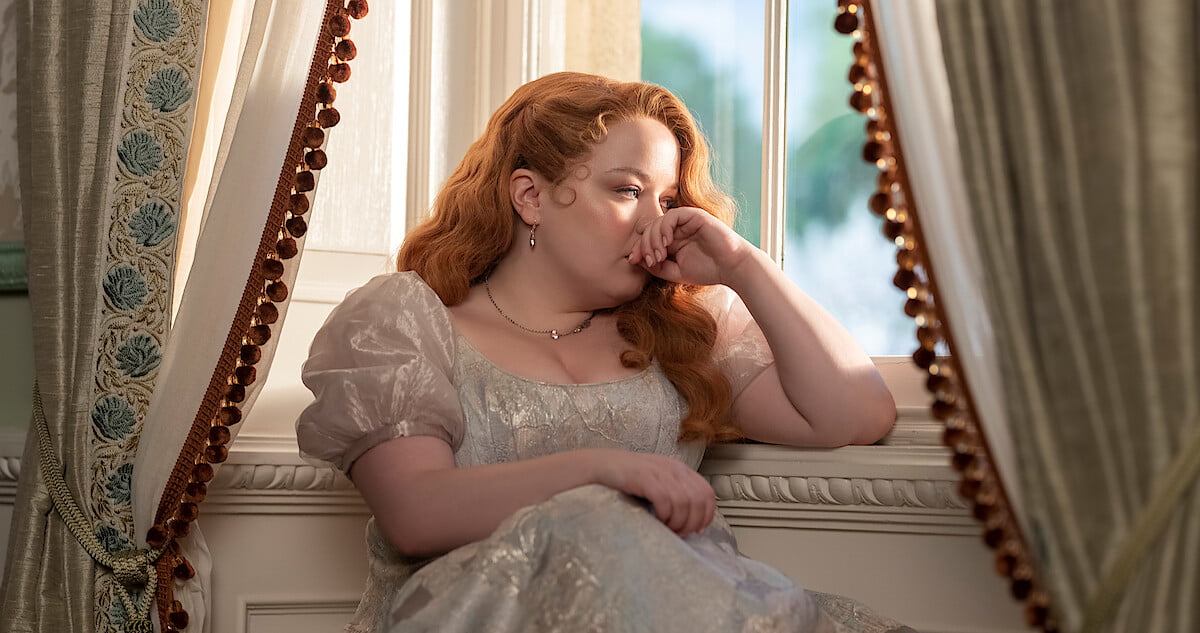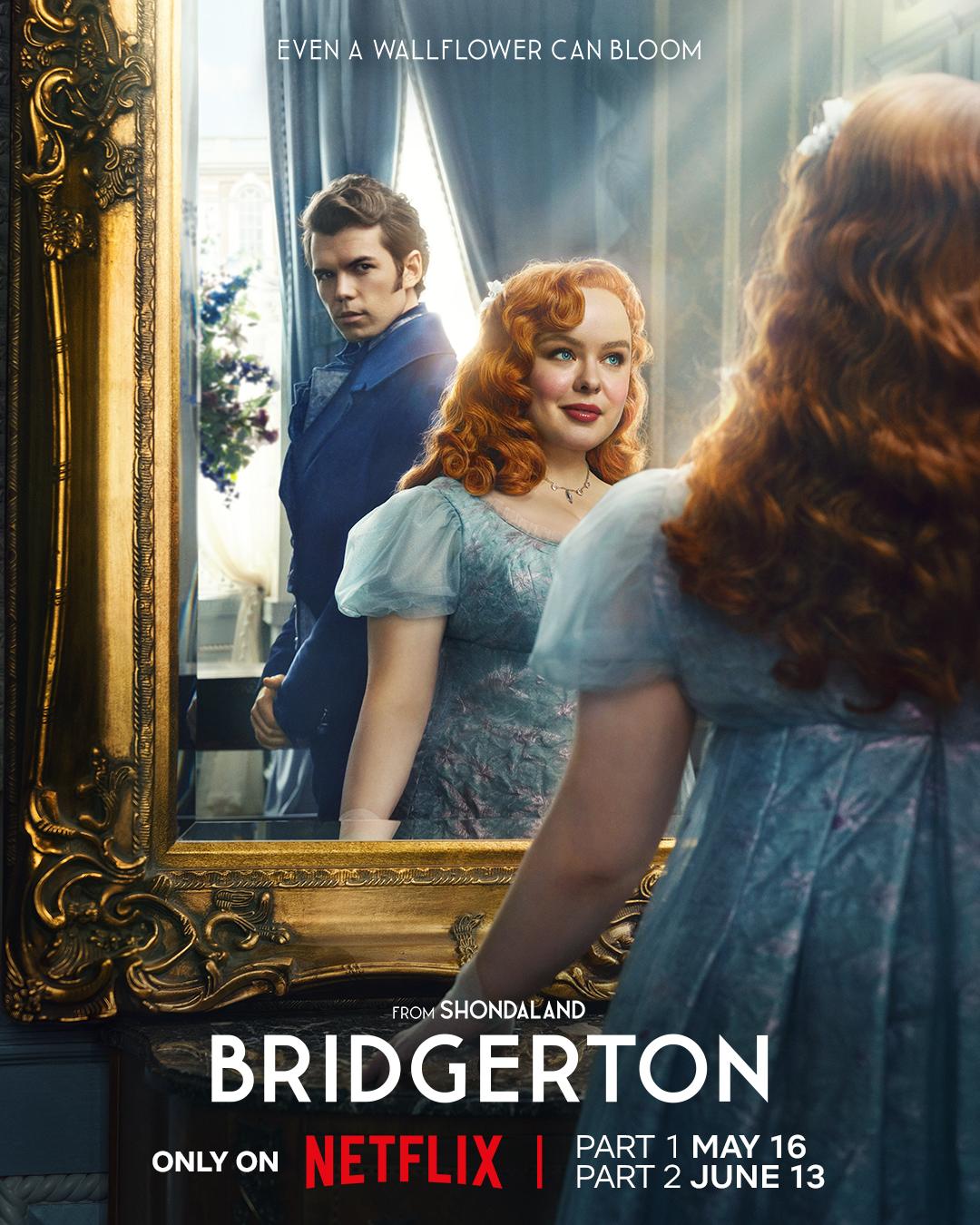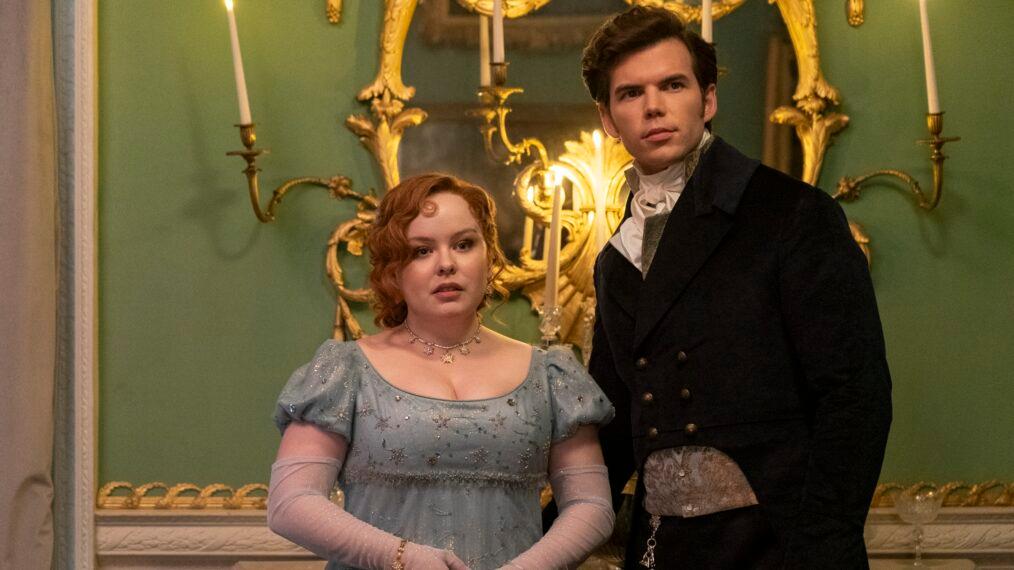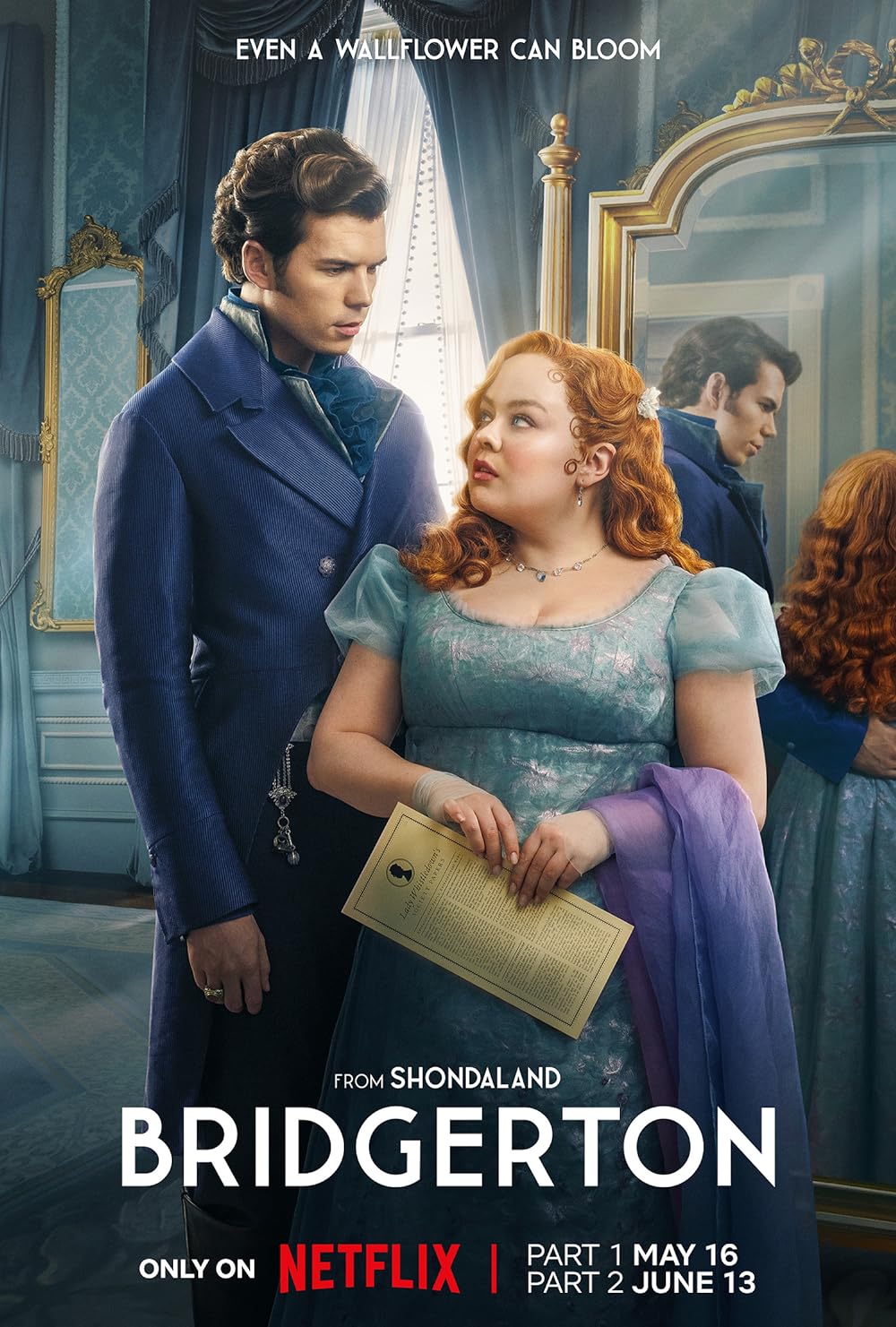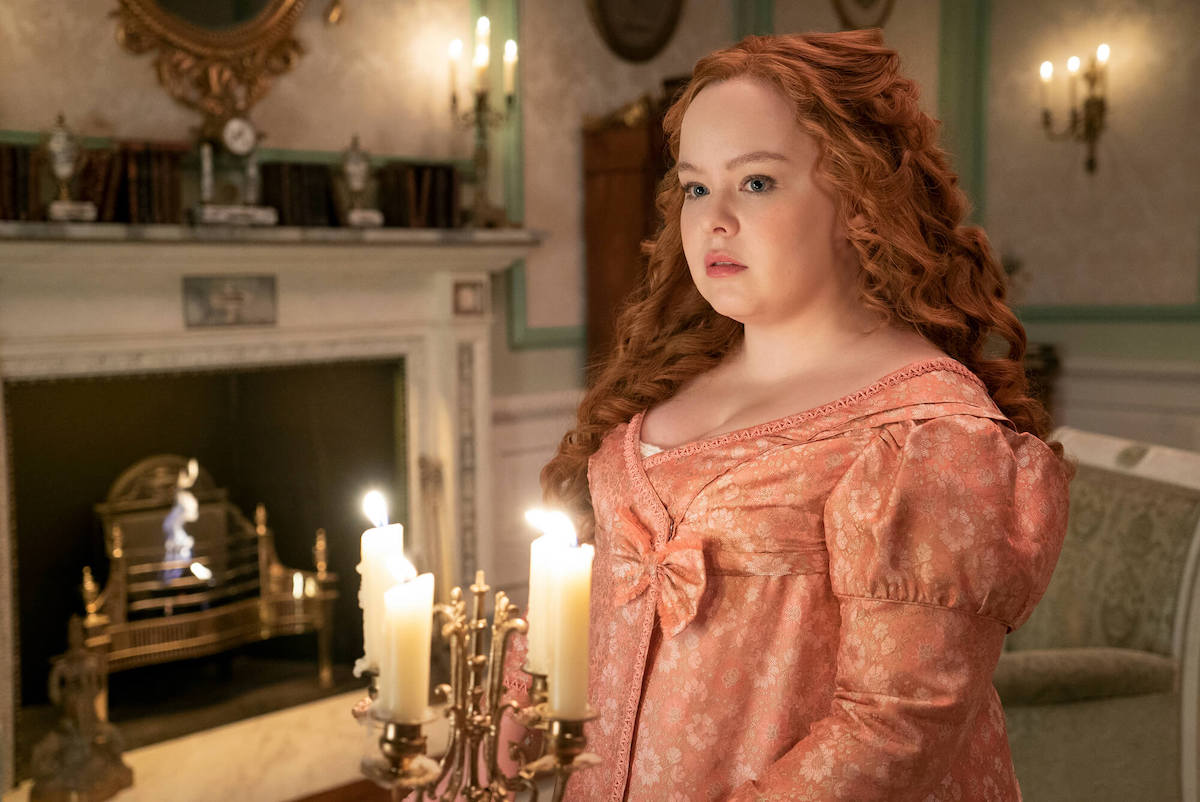Netflix’s Bridgerton, the raunchy Regency drama, dropped the first half of its third season on Netflix in mid-May, for the first time in over two years. It is finally the Season in London’s Mayfair again, with starry-eyed debutantes hoping to come into the good graces of Queen Charlotte (Golda Roshuvel) all the while navigating a society that pits them against one another. Bridgerton is fun, sexy, and enchanting, a package that makes for easy viewing, and this season, it has somehow managed to take it a step further, making it quite possibly its best season yet.
Bridgerton season 3: what to look forward to
Season three of Netflix’s hit show focuses on the romance between Penelope Featherington (Nicola Coughlan) and Colin Bridgerton (Luke Newton), after spending two seasons building up their character arc as close friends, who slowly embark on a journey to find true love. Fans of the show have been looking forward to seeing their love story play out on screens for two years (Season 2 of Bridgerton aired in 2022), and the show does not disappoint.
Bridgerton is not historical and does not claim to be so, instead, we get remarkably modern storylines, set in the backdrop of early nineteenth-century England. Plotlines where the usual high stakes of period dramas are abandoned for a larger conversation around romance, marriage, and the pursuit of love. Both Nicola Coughlan and Luke Newton are fantastic in their roles, with Coughlan and Newton’s effortless comic timing bringing in a much more spontaneous feeling to the first half of Season three than the previous seasons. The show sets up an easy relationship between the lead characters, emphasising their long-standing friendship that blossoms into love, which is a departure from the usual romance tropes enjoyed in television.
The show sets up an easy relationship between the lead characters, emphasising their long-standing friendship that blossoms into love, which is a departure from the usual romance tropes enjoyed in television.
In the first two seasons, the lead characters start from a point of unfamiliarity, and this is translated through to the audience, who go through the same motions that one does when learning about someone new. When it comes to Colin and Penelope, the audience is aware of who they are, and who their alter egos are (spoiler), and has seen their characters grow and change over the span of four years. They are indeed, as familiar to us as old friends, and the script, to its credit, does not change far from the beaten track, and as one settles in to watch them fall in love with each other, interspersed with moments of levity, one feels at ease, as if amongst friends.
The change of showrunner from Chris Van Dusen to Jess Brownell has been one of Shonda Rhimes’ better decisions regarding storytelling, as it allows for a reduced focus on drama and an increased focus on the central love story. Unfortunately, the predilection for dramatics on television and visual media meant that the previous two seasons reduced its supporting characters to mere caricatures, a mistake that is not easily rectified, but Brownell makes a valiant attempt. In both seasons one and two, Newton and Coughlan’s characters were supporting characters of an ensemble cast, and Dusen’s narrative and directorial choices led to their character arcs suffering tremendously.
Brownell even attempts to salvage Cressida Cowper (played by Jess Madsen) who, in earlier seasons, played a Regency-era Mean Girl with no motivations for her actions except for pettiness and jealousy. In season three, we are introduced to her home life, which provides meaningful context behind her actions and her rationale. The Featherington family, with the matriarch, Portia (played by Polly Walker), and Penelope’s two sisters, Philippa (played by Harriet Cains) and Prudence (Bessie Carter) provide some of the most unintentionally humorous moments of the show.
The Featheringtons form the primary foil to the Bridgertons, a family that does not possess either a good standing or a large amount of money. It shows the contrast between the Bridgertons and actual society, which are governed by archaic rules and continue to force families to conform.
The Featheringtons form the primary foil to the Bridgertons, a family that does not possess either a good standing or a large amount of money.
The second love story that unfolds throughout the season, apart from Penelope and Colin’s, is that of Francesca Bridgerton (Hannah Dodd) and John Stirling, Earl of Kilmartin (Victor Alli). Beyond the breathless romances that take place in the Bridgerton universe, Francesca and John find their own, in peace, quiet, and an excellent romantic gesture in the form of a music score. Bridgerton truly has something for everyone.
The problematics of portraying female solidarity in Bridgerton
Bridgerton is ostensibly based on the eponymous book series by Julia Quinn, and yet it has made a name for itself by being one of the most “inclusive” shows on cable and streaming television. Indeed, the glamorous world of Regency-era England, suffused with just the bare minimum of politically correct racially inclusive casting and storylines, makes for exciting fare, if not guilt-free.
Bridgerton is a fantasy: it is an aspirational setting of Regency England where the issues of nineteenth-century England are done away with entirely; in the first season itself, we get a vague explanation of why racism no longer exists. It is fascinating to watch the lives of people who are rich and beautiful and historical, a form of media consumption that allows for minimal guilt and maximum satisfaction. Bridgerton is the peak of cable television, translated for its streaming audiences.
However, if we are to create discourse around this show, there is a need to have a conversation about the perception of women in the show and in public, and how it is directly influenced by our modern-day sensibilities. Lady Whistledown, Penelope’s alter ego, is the most notorious gossip columnist in London, and we see her write favorably about the debutantes, only for them to gossip about her a few days later when it is revealed that she enlisted the help of her friend to find a husband for herself.
Regency society, and indeed, modern society, does not wish to foster female solidarity, as it threatens the very facade of patriarchy. For patriarchy, it is essential to position women against each other, making them compete for the same resources, in a world that refuses to acknowledge them unless they are held in matrimony to a man.
Neither Regency England, nor modern society is exempt from this. Both Cressida and Penelope are fellow debutantes, and as such they should view each other as friends, but the rules of society dictate that they must view each other as competitors, who stake their claim on an undeserving man and try their best to escape their dreary prospects of being a spinster, a burden on their married siblings.
Unfortunately, Season Two falls prey to this way of thinking, and Dusen’s inclusion of a love triangle between two sisters leaves a bad taste in the mouth. Edwina Sharma, Anthony Bridgerton’s fiancée, is the sister of his love interest, Kate Sharma, and by the end of the series, the onus of ensuring her sister’s happy ending falls on Edwina, a teenage girl who has to ruin herself in a society that views her as an outsider and a rival for scarce resources.
Unfortunately, Season Two falls prey to this way of thinking, and Dusen’s inclusion of a love triangle between two sisters leaves a bad taste in the mouth.
Womanhood in Bridgerton is a performance and a competition: to be a woman is to perform, and what else, apart from societal rules, are the biggest upholders of patriarchy and the praxis of performance?
Final thoughts
For most of us, Bridgerton is a series that we watch over a singular afternoon and then forget over the week. It is meant to be a show that is watched over drinks and promptly forgotten the next day, and yet, it has given rise to a level of discourse that might be, unfortunately, entirely unnecessary. To create discourse over characters is always fun and informative, and fandom and fan culture has always been a place for women and queer people to express themselves and find their voice.
But as we step into a post-pandemic world where discourse continues to be weaponised, it would do us some good to remember that while fictional characters are non-existent, real-life people, such as the actors who bring our beloved characters to life, are indeed real, and like real people, they possess feelings, and in most cases, a robust legal team. When you force an actor to apologise for the decisions taken by production, and continue to punish them for no fault of their own, even after two years, it begs the age-old, and eternally poignant question: is it ever that serious?
